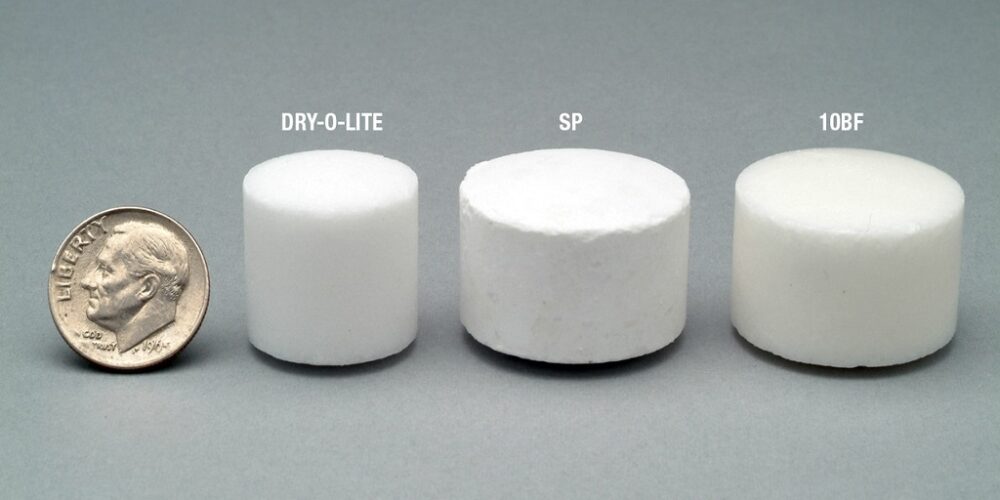When it comes to the natural gas industry, there’s a silent yet indispensable player that ensures everything runs smoothly: calcium chloride desiccant. In this piece, we’ll investigate calcium chloride desiccant, its importance, and the numerous industries it impacts.
Why Moisture Is Such an Issue
First and foremost, moisture within natural gas pipelines is a significant concern. It’s also a bigger problem than that—it has the potential to cause severe corrosion and can lead to freezing issues within the pipelines. And here’s where this natural gas desiccant steps into the limelight: it serves as a moisture-sucking agent, keeping the gas dry and so reducing the risks.
More Than Just Gas: Where Else Is Calcium Chloride Desiccant Essential?
You’d be surprised to know that the prowess of this natural gas desiccant isn’t limited to natural gas pipelines. Here are some areas where it plays an irreplaceable role:
Dehumidifying Air: Think about those summer months when the humidity becomes unbearable. This desiccant is frequently employed in breathing air systems, maintaining a comfortable atmosphere, and warding off mold and mildew.
Food Preservation: Ever wondered how certain foods maintain their freshness during transit? Some food packaging incorporates desiccants to keep moisture at bay, ensuring the food remains fresh.
Chemical Safety: Working with chemicals such as acids and bases demands special attention. Natural gas desiccant comes to the rescue by drying these chemicals, thereby preventing potential corrosion or reactions.
Corrosion Prevention: The longevity of metal pipes and equipment is paramount. Desiccant serves as a guardian against corrosion, ensuring a longer lifespan for your equipment.
Natural Gas Desiccant: Industries in Focus
Electricity Generation: Power plants harnessing natural gas prioritize the use of desiccant. It’s vital for preparing gas before combustion, ensuring turbine efficiency.
Manufacturing: Be it a car factory or electronics manufacturing, the importance of dry air cannot be overstated. Here, compressed air desiccant steps in, warding off condensation and potential corrosion.
Transportation: Vehicles running on natural gas benefit significantly from compressed air desiccant. It ensures fuel remains unfrozen, paving the way for smooth engine operations.
Home Heating: Homes using natural gas heating can sometimes enlist the aid of compressed air desiccant, ensuring a mold-free and comfortable environment.
Commercial Cooking: Those scrumptious meals from commercial ovens owe a bit of their perfection to compressed air desiccant, ensuring moisture doesn’t play spoilsport.
Spotlight on GasDry™ Peak SP
Available at AirVacuumProcess.com, GasDry™ Peak SP is a front-runner in the deliquescent desiccant realm. Formulated specifically for the dehydration of natural gas, especially when gas temperatures are below 80°F, SP stands out for its impeccable performance.
How does it work? Think of it as a constant cycle. The dense hygroscopic tablet draws in water vapor, its surface slowly forming a brine solution that drops away. This process continues until the desiccant is wholly consumed. What’s even better? These desiccants, including SP, are environmentally safe, non-toxic, and water-soluble.
And there’s more to it:
Features & Benefits: Among its standout attributes, SP requires no energy, is suitable for operating temperatures of 80°F and lower, and is environmentally friendly. Plus, it offers benefits like preventing condensation and gas line freeze-ups, and can even be used both indoors and outdoors.
Applications: GasDry™ Peak SP is versatile. Whether it’s drying high-pressure, low-temperature sales gas, fuel gas dehydration, or instrument gas dehydration, SP has got it covered.
So, the next time you consider the vast world of natural gas or any of the industries we’ve discussed, remember the role of calcium chloride desiccant. It might not be in the limelight, but it’s undeniably essential.










